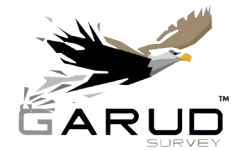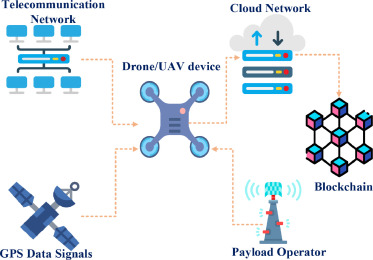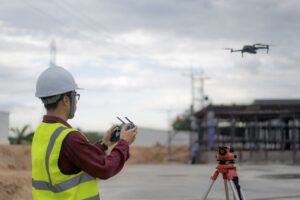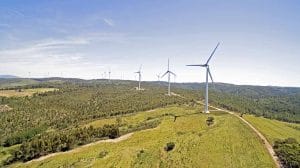In recent years, the integration of blockchain technology with drones has emerged as a groundbreaking frontier in data security. As drones become increasingly ubiquitous in sectors ranging from logistics and agriculture to surveillance and search-and-rescue missions, the challenge of securing the data generated by these unmanned aerial vehicles (UAVs) has grown substantially. With their ability to transmit sensitive data in real time, drones require robust security systems to prevent unauthorized access, data tampering, and breaches. Blockchain technology, with its decentralized, tamper-proof ledger system, has proven to be a key enabler in enhancing the security and integrity of drone-generated data.
Understanding Blockchain Technology
Blockchain technology is often described as a distributed ledger that records transactions across many computers in such a way that the registered transactions cannot be altered retroactively without changing all subsequent blocks. Each “block” contains data, such as transaction records, and is securely linked to the next, forming a chain. This decentralized and transparent nature of blockchain ensures that the data stored on it is immutable, providing a high level of security against cyber-attacks and data tampering.
Drones: The Need for Security
Drones are equipped with sensors, cameras, and other advanced technologies that allow them to capture and transmit data in real time. For instance, in logistics, drones are used for delivering packages, while in agriculture, they monitor crop health. The data generated by these drones often includes sensitive information such as location data, images, and videos. The transmission of this information, especially over wireless networks, exposes it to potential hacking, unauthorized access, or tampering.
Moreover, drones are increasingly being used for critical operations, including military surveillance, emergency response, and environmental monitoring. In these contexts, the integrity and security of the data are paramount. Any disruption or alteration of the data could have serious consequences, from misdirecting rescue operations to compromising national security. Therefore, there is an urgent need for a system that ensures the secure transmission, storage, and access control of drone-generated data.
How Blockchain Enhances Drone Security
Blockchain technology offers several key advantages that make it a perfect fit for securing drone data.
- Decentralization: Blockchain operates on a decentralized network of computers (nodes), eliminating the need for a central authority. This decentralized nature ensures that data stored on the blockchain is not vulnerable to a single point of failure. For drones, this means that their data is securely distributed across multiple nodes, making it harder for hackers to gain unauthorized access or manipulate the information.
- Data Integrity: Blockchain’s immutable nature ensures that once data is recorded on the ledger, it cannot be altered. In the context of drones, this ensures that the data they capture—whether it’s images, location coordinates, or sensor data—remains unchanged. This is particularly critical in scenarios like military surveillance or emergency response, where any tampering could have disastrous consequences.
- Authentication and Authorization: Blockchain can provide secure authentication for drone systems. By using cryptographic techniques such as public-key infrastructure (PKI), blockchain ensures that only authorized entities can access, send, or receive drone data. This prevents malicious actors from hijacking or interfering with the drone’s operation or the data it collects.
- Transparency and Traceability: Blockchain enables transparency, allowing stakeholders to trace every action taken by the drone. This is especially useful for applications like supply chain management, where businesses need to track the exact location and condition of products in transit. With blockchain, every transaction or data point can be verified in real-time, providing an accurate and transparent history of the drone’s journey.
- Smart Contracts: One of the most promising applications of blockchain in drone technology is the use of smart contracts. These self-executing contracts are coded into the blockchain and automatically execute when predefined conditions are met. For example, drones could be programmed to only deliver packages to specific locations when certain conditions—such as authentication of the recipient—are verified by the blockchain. This can reduce human error and ensure that drones only operate within defined parameters.
Real-World Applications of Blockchain and Drones
Several industries are already exploring the synergy between blockchain and drones. In the logistics sector, companies like Amazon and UPS are testing blockchain for secure tracking of drone deliveries, ensuring that data such as delivery status and timestamps are immutable and verifiable. In agriculture, drones are used to monitor crop conditions, and blockchain can ensure the integrity of data sent back to farmers, which is crucial for making timely and informed decisions about irrigation and pest control.
In the military and defense sector, where drones are often deployed for surveillance and reconnaissance, blockchain could enhance data security by preventing enemy forces from intercepting or altering mission-critical information. In emergency response, blockchain ensures that drone-collected data used in search-and-rescue operations remains accurate and trustworthy, even in challenging environments.
The Future of Blockchain and Drones
As the use of drones continues to expand, the combination of blockchain and drones will become increasingly critical in ensuring the security of data transmission and storage. The ability to create secure, transparent, and immutable records for drone operations will foster greater trust in the technology and open up new possibilities in sectors where data integrity is essential. While there are still challenges to address, such as scalability and regulatory concerns, the future of blockchain and drones looks promising, with the potential to revolutionize data security in a wide range of applications.
In conclusion, the marriage of blockchain technology and drones represents a new frontier in data security, providing an effective solution to protect the sensitive information these devices generate. As both technologies continue to evolve, we can expect even more innovative solutions to emerge, further safeguarding the critical data that powers our modern world.




